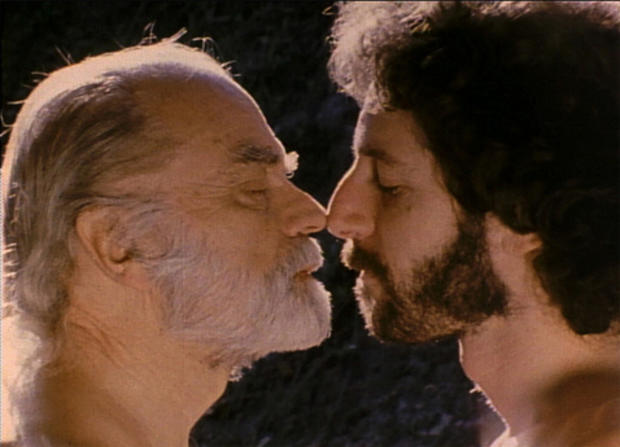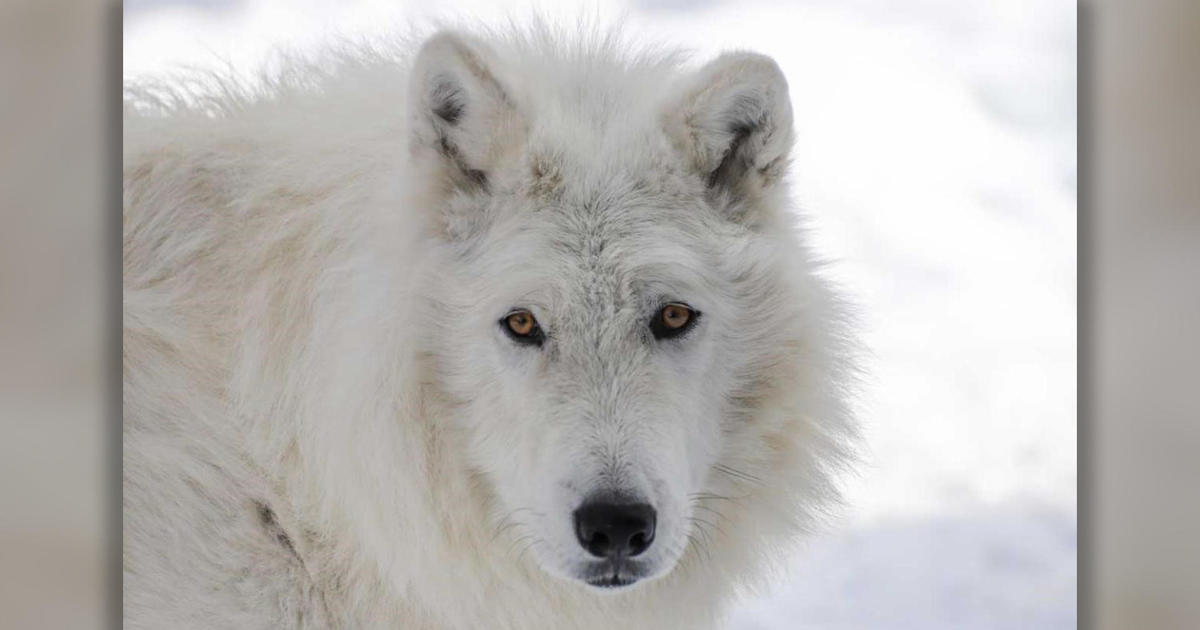Movie Blog: Q&A With 'Big Joy' Director, Former Minnesotan
You might say that James Broughton drank life for every drop it's worth. Artistically a proponent of happiness above all else, his experimental films nuzzled right into the furry California next wherein the wonder of discovery, the liberation of open expression and the boundless horizons of sexual freedom met.
While some may regard his works as the ultimate in "you had to be there" indulgence, there's just as much fuel behind the argument that now, more than ever, one can't discount the rarity of honest, good vibrations.
Big Joy: The Adventures of James Broughton, a new documentary about the life and times of poet-artist-filmmaker Broughton, is screening at the Walker this Thursday following a showing of one of his most sexually frank shorts, 1968′s The Bed.
Stephen Silha, who co-directed the film with Eric Slade, will be on hand. Silha, a former Minnesotan who studied at Mankato State University, met Broughton in 1989 when he became involved with the Radical Faerie movement.
"James and I went on 'writing retreats' together, visiting the ocean, the mountains, and the wine country of Washington State. His death (which I witnessed) was transcendent for me. He carried around a snakeskin all day to remind himself that he was just shedding a skin," Silha said.
Big Joy sheds many skins in its scant 82 minutes, tracking Broughton's path from effeminate young boy whose relationship with his mother was evidently strained to his domestic alignment with famed film critic Pauline Kael, and winding up with his late-in-life burst of self-actualization after meeting his (male) soul mate amid a new bohemian utopia. (Imagine Christopher Plummer's character in Beginners as an experimental filmmaker, rubbing shoulders with Harry Hay.)
"His poetry and personality helped create a vibrant post-war artistic climate after WWII in San Francisco, the soil out of which the Beat movement grew," Silha said. "His sensual poetry and films of the 70s and 80s gave voice to a spiritualized sexuality that is continuing to emerge culturally today. He foreshadowed today's multimedia culture."
I had the chance to ask Silha a few questions leading up to the Walker's screening this Thursday. Our conversation follows:
-------
-------
You followed the work of James Broughton first hand during the last part of his life. What first drew you to his work?
I first saw some of his short experimental films at the Museum of Modern Art in New York in 1979, and I was fascinated by the poetry and subtle homoeroticism. Then I kind of forgot about him until we were assigned to the same cabin at a Radical Faerie gathering in Oregon. I actually thought his poetry was kind of silly and simplistic at first, but I have come to appreciate the craft that went into them. I watched him get up at 5 many mornings to write.
Watching the film, the aspect of Broughton's life and art that seemed the most "out there" to me wasn't his sexual journey or the experimentalism of his films, but plainly his attitude -- that "Big Joy" of the title. In an age of irony and postmodernism, is it a revolutionary act to seek happiness above all else?
He thought so. His epitaph says "Adventure, Not Predicament," and I must say that idea has been helpful to me in life, and particularly the making of this film. He pushed seeing the glass as half full to a new level.
The film draws parallels between Broughton's films and the directors who inspired him -- Maya Deren, Luis Buñuel and especially Jean Cocteau. Which filmmakers today do you see as being inspired by Broughton's body of work? Which directors inspired you?
There's a whole generation of experimental filmmakers who were inspired by Broughton -- I run into them all the time. Many were his students at San Francisco Art Institute and San Francisco State University. But the names you might know include Gus Van Sant (who told me recently that the sex scene in My Own Private Idaho was directly inspired by Broughton's 1971 The Golden Positions) and George Lucas (who said in an interview that he wanted to go to San Francisco after graduating and make "tone poem films like James Broughton's"). I was inspired by Broughton, of course, but also by Spike Lee and Michael Moore and directors of films like Man On Wire, An Inconvenient Truth, and Jack Smith And The Destruction Of Atlantis.
Try as I might, I cannot think of a stranger pairing than Broughton with film critic Pauline Kael, to whom he fathered a child. Kael often seemed to endorse very rigid forms of masculinity on the screen, and there's speculation in the film that she was a surrogate mother figure in his life. Is there more than meets the eye there?
Very true -- they both had fiery intellects, and obviously other sparks, too. He claims that she tricked him into impregnating her. They had an ongoing dialog about "big films" vs. "little films." And she wrote a play about a fey, mother-obsessed character who obviously was based on James.
How does someone go from being a Midwest reporter for the Minneapolis Star and the Christian Science Monitor to being a member of the Radical Faeries?
The path was somewhat circuitous. But when my brother died and the Monitor started firing gay staffers, even though I was in the closet, I got out of Boston. With my boyfriend (who was also in the closet), I moved to Flint, Mich. where I worked for the Charles Stewart Mott Foundation and encountered the feisty Michael Moore, who then edited the alternative paper, The Flint Voice. Robert Bly had a huge influence on me during his Wild Man days, and after he taught about the spectrum of gods and goddesses in each of us, I got up the courage to go to a Radical Faerie gathering. I have been every year to at least one gathering since 1985. Broughton's work resonated, and in a way I see this film as a gift from Radical Faeries to the dominant culture.




